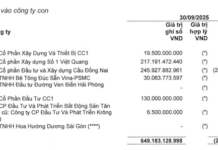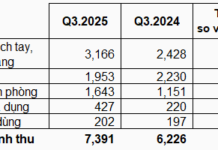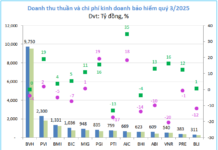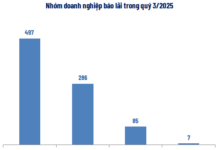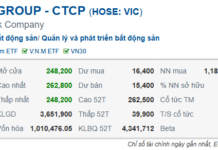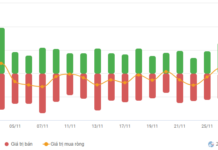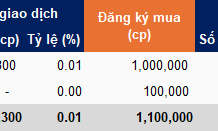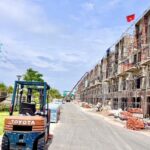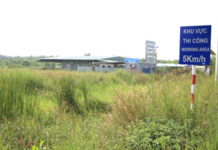Affordable Housing in Vietnam: A Challenging Endeavor
A newly announced social housing project in Hanoi has set a record-breaking average price of 29.4 million VND per square meter. This marks a nearly double increase compared to pre-2023 prices, making it the highest ever for social housing in the market.
During the first meeting of the Central Steering Committee on Housing Policy and Real Estate Market in September, the Ministry of Construction reported that newly built social housing units (primary market) are expected to range between 15-25 million VND per square meter, an increase from 2024 figures.
Currently, the average monthly income of Vietnamese workers is 8.3 million VND (data from the General Statistics Office, Ministry of Finance).
For a family of two aiming to purchase the smallest unit of approximately 30 square meters in the aforementioned project, they would need around 900 million VND.
With a combined average monthly income of 16.6 million VND, it would take this family over 54 months, or roughly 4.5 years, to afford the home, assuming no other expenses. Additionally, they must navigate the application screening process and a lottery system if demand exceeds available units.
While these financial conditions seem unrealistic, they highlight the harsh reality that owning social housing or affordable housing remains a significant challenge for low-income individuals.
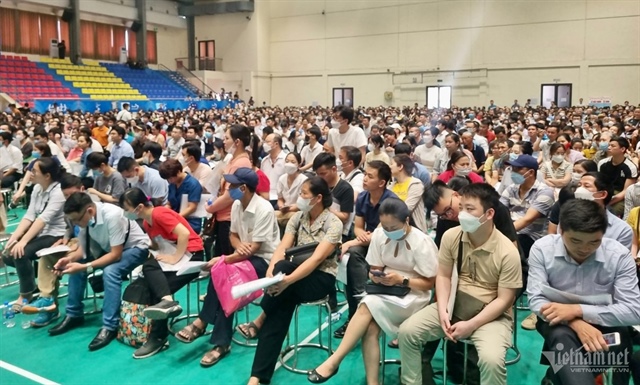
1,300 participants vied for 149 social housing units at the NHS Trung Van project (Hanoi) on May 20, 2023, with odds of nearly 1 in 9. Photo: Hồng Khanh |
Dr. Su Ngoc Khuong, Senior Director of Investment Advisory at Savills Vietnam, notes that supply-demand imbalances and inadequate urban planning make it difficult for social housing to reach those truly in need.
Fluctuations in construction material prices and a shortage of project supply are driving up secondary market prices for social housing. Many units are resold at double or even triple their original prices just a few years after handover.
From a societal perspective, Savills representatives warn that a lack of affordable housing can lead to social issues. Long-term consequences may arise if social housing remains out of reach for the intended population.
Controlling Social Housing Prices is Essential
According to the Ministry of Construction, Vietnam needs to build at least 1 million social housing units by 2030 to meet the demand, particularly for industrial zone workers and low-income earners.
However, the Ministry notes that some localities have not prioritized social housing development, failing to include it in their development plans. Many areas also lack budget allocations for compensation, resettlement, and infrastructure development needed to prepare land for social housing projects.
Beyond the shortfall in completed projects, some initiated social housing projects have either not started construction or are facing delays.
While localities have allocated sufficient land for social housing, the quality of these sites is often inadequate. Many designated plots are poorly located, far from city centers, and lack essential technical and social infrastructure, rendering them unusable.
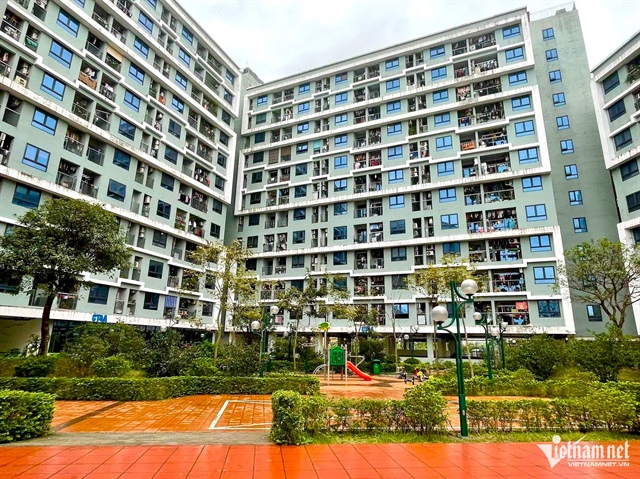
A social housing project in Hanoi. Photo: Hồng Khanh |
In an interview, Mr. Nguyen Ngoc Bao, former Standing Member of the National Assembly’s Economic Committee, identified two major issues in social housing development.
First, the procedures for social housing projects are overly complex. Low profit margins coupled with extensive red tape discourage businesses from participating, leading to slow disbursement of the 120 trillion VND credit package for social housing development.
Second, many social housing projects are rushed to completion for reporting purposes. Often located in inconvenient areas with inadequate infrastructure, these projects fail to attract residents, undermining their purpose.
“Prime locations are reserved for commercial housing, while less desirable areas are allocated for social housing. The disparity between commercial and social housing is too great. The notion that low-income individuals should settle for substandard housing is misguided,” he stated.
To address these challenges, Mr. Bao suggests that localities must clearly designate land for social housing projects. Developers should consider the actual needs of residents when planning these projects.
Additionally, state agencies are capable of regulating social housing prices. While businesses need to profit, these gains must remain within reasonable limits.
The government can calculate construction costs per square meter, including land expenses, to determine developer profits and cap selling prices for social housing units.
Lastly, streamlining related procedures is crucial to increasing the supply of social housing in the market.
Dr. Su Ngoc Khuong emphasizes that sustainable social housing development requires clear land allocation and performance-based agreements (KPIs) between the government and developers.
State support in legal procedures, credit, and profit margins is also essential. Removing these barriers, especially by providing loans and favorable interest rates to both developers and eligible buyers, along with special mechanisms to support them, will ensure a steady supply.
|
As of September 2025, the 1 Million Social Housing Units Program (2021-2030) has 692 projects underway, totaling 633,559 units. Of these, 165 projects (110,436 units) are complete; 147 projects (135,033 units) are under construction; and 380 projects (388,090 units) have received investment approval. To date, only 165 projects (approximately 110,436 units) have been completed, meeting just 1/10 of the program’s target (1,062,200 units). |
Trần Chung
– 06:00 13/10/2025
Unveiling the Triangle Millet Scooter: Vision-Level Pricing, 1.75L/100km Fuel Efficiency, Spacious Storage, and Smartkey Technology
This sleek scooter model offers a surprising array of features at a price point just over 30 million.
Ho Chi Minh City: Vietnam’s Megacity and Engine of Growth
In just a few days, the Ho Chi Minh City Party Congress will officially commence. This event transcends local politics, marking a pivotal moment in the nation’s development. As the first Congress following the city’s expansion through the merger with Binh Duong and Ba Ria – Vung Tau, it heralds the birth of a megacity boasting over 14 million residents. This new metropolis stands as Vietnam’s premier hub for industry, services, finance, and maritime trade.











